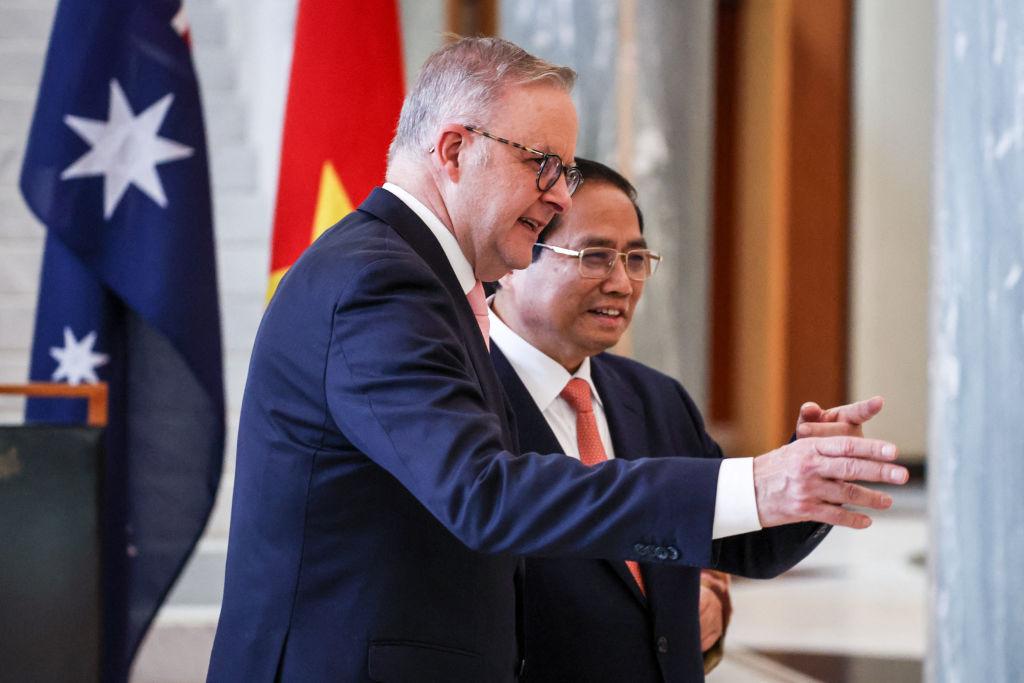In the aftermath of a collision between Chinese and Philippine ships in the South China Sea on March 6, Australia and Vietnam have announced they will intensify their collaboration on various fronts, including bolstered maritime cooperation through defence and intelligence-sharing. Combatting people smuggling and money laundering will also be prioritised, as well as “cyber-operations.”
The two nations have now established a “comprehensive strategic partnership,” officially elevating ties to the highest level adopted by Vietnam and placing Australia on an equal footing with China, the United States, India, Japan, Russia, and South Korea.
Pursuing relationships with both China and the U.S. is an approach called “bamboo diplomacy” by analysts, meaning flexibility, pragmatism, and multiple objectives.
In a joint statement, Prime Minister Anthony Albanese and his Vietnamese counterpart Phạm Minh Chính expressed “concerns on the situation in the South China Sea.”




